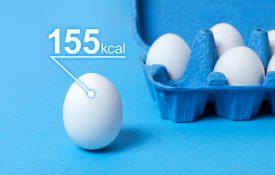-

Brain Activity Provides Evidence for Internal “Calorie Counter”
As you glance over a menu or peruse the shelves in a supermarket, you may be thinking about how each food will taste and whether it’s nutritious, or you may be trying to decide what
-
SRCD Policy Fellowships for 2015-2016
Call for Applications The Society for Research in Child Development (SRCD) is seeking applicants for SRCD Policy Fellowships for 2015–2016. There are two types of fellowships: Congressional and Executive Branch. Both types of fellowships provide researchers with exciting opportunities to come to Washington, DC, and use their research skills in child development to inform public policy. Fellows work as resident scholars within congressional or federal agency offices. Fellowships are full-time immersion experiences and run from September 1, 2015, through August 31, 2016. The SRCD Office for Policy and Communications in Washington, DC.
-
Scientists Trying New Trick to Catch You in a Lie
ABC News: Ah, Pinocchio, where are you when we need you? How convenient it would be if a liar's nose grew longer with every lie. Then we wouldn't need modern science with all those brain scanners and high tech gizmos to tell us when somebody is fibbing. Ever since John Larson, a medical student at UC Berkeley, invented the polygraph in 1921, scientists have tried to come up with a more reliable way to decipher autonomous signals from the human brain whenever a subject is bending the truth. Cameras that track shifty movements of the human eye and sensors that detect sweaty palms or muscle twitches that we can't control have all been tried with varying degrees of success.
-
How Consumers’ Moods Drive Decisions
The Atlantic: In April this year, scientists from Georgia Tech and Yahoo Labs reported that something strange was manipulating online restaurant reviews. It wasn't hackers. It wasn't software bugs. It was rain, snow, and sunshine. After looking at more than 1 million online reviews on sites like TripAdvisor, they found that restaurants received significantly better ratings on days with nice weather and worse reviews on any day with rain. “The best reviews are written on sunny days between 70 and 100 degrees,” researcher Saeideh Bakhshi concluded. “A nice day can lead to a nice review. A rainy day can mean a miserable one.” ...
-
We Want Privacy, but Can’t Stop Sharing
The New York Times: IMAGINE a world suddenly devoid of doors. None in your home, on dressing rooms, on the entrance to the local pub or even on restroom stalls at concert halls. The controlling authorities say if you aren’t doing anything wrong, then you shouldn’t mind. Well, that’s essentially the state of affairs on the Internet. There is no privacy. If those creepy targeted ads on Google hadn’t tipped you off, then surely Edward J. Snowden’s revelations, or, more recently,Jennifer Lawrence’s nude selfies, made your vulnerability to cybersnooping abundantly clear. ...
-
How Moms Change Brains
Pacific Standard: For little kids, seeing mom or dad nearby is a calming influence, maybe the difference between between perfect calm and a full-bore freakout. It’s as if having a trusted caregiver nearby transforms children from scared toddlers into confident adolescents. And in a way, a new report suggests, that’s what having mom around does to a kid’s brain. When they’re first born and for years after, infants and young children can’t do a whole lot by themselves. They can’t eat on their own, they aren’t very good at managing their emotions, and it takes a while for them to learn how to dress themselves.

